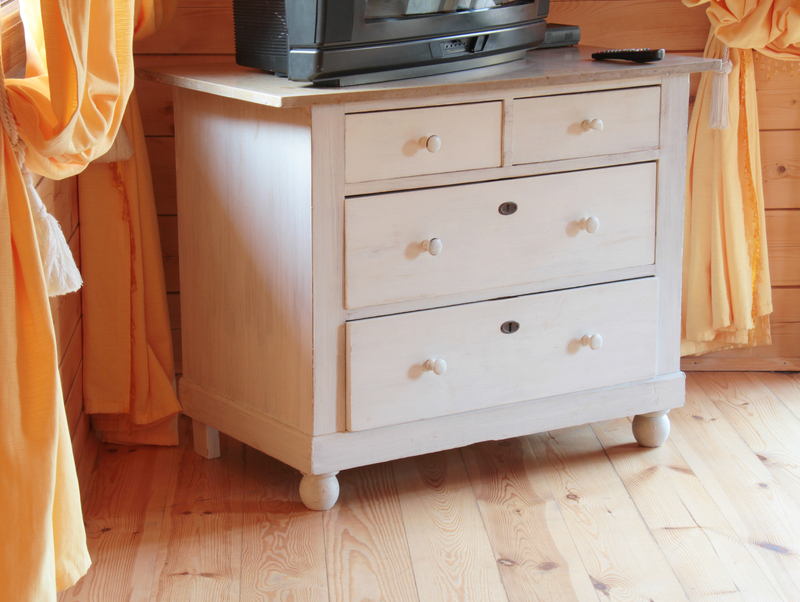The Connection Between De-cluttering and Stress Relief
Clutter is more than just a collection of items scattered across your living space; it's a reflection of our mental state, lifestyle, and sometimes even our emotional health. As our schedules become busier and our obligations multiply, it's easy for clutter to pile up. Remarkably, research has shown that the mere act of decluttering can have powerful effects on our overall well-being. In this article, we'll take an in-depth look at the relationship between decluttering and stress relief--exploring why tidying up clears not just our homes but our minds, too.

Why Clutter Causes Stress: The Science Behind It
Before diving into how decluttering reduces stress, it's crucial to understand why clutter is stressful in the first place. Our environments profoundly influence our mood, focus, and productivity. Here's why:
1. Clutter Overstimulates the Mind
- Visual Overload: Every item in your view demands a small piece of your attention. A cluttered space continuously stimulates the brain, making it harder to focus and relax.
- Decision Fatigue: More things often mean more choices and more decisions, leading to mental exhaustion, also known as 'decision fatigue.'
- Disrupted Flow: A messy environment interrupts the mental flow, making it difficult to concentrate on important tasks or simply unwind.
2. Emotional Attachment and Guilt
- Attachment Issues: Letting go of items with sentimental value is emotionally taxing--sparking anxiety or guilt.
- Perpetual To-Dos: Unfinished projects or piles of paperwork serve as a constant, stressful reminder of tasks yet to be completed.
3. Physical Impact
- Difficulty Navigating: Clutter makes it challenging to move around freely, contributing to heightened stress levels and even physical risks.
It's no wonder, then, that clutter and anxiety often go hand-in-hand.
Decluttering: A Practical Tool for Stress Relief
Decluttering isn't just about tidying up. It's a conscious, mindful act that can spark transformative changes in the way we feel and function. Let's break down how organizing your life contributes to stress reduction.
1. Creates a Sense of Control
Managing chaos can be daunting, but by actively decluttering your space, you reclaim control over your environment. This act--however small--restores a sense of empowerment and diminishes feelings of helplessness.
2. Enhances Mental Clarity
When your surroundings are organized, there's less competing for your attention. This leads to improved concentration, better decision-making, and an overall sense of mental calm.
3. Improves Sleep Quality
- Cluttered bedrooms are linked to difficulty falling and staying asleep.
- Simplifying your sleeping space creates a more restful environment, essential for stress relief and better health.
4. Provides Physical Health Benefits
Removing obstacles and excess items reduces the risk of accidents while also promoting hygiene. A clean space can lower the spread of allergens, dust, and bacteria--indirectly reducing health-related stress.
5. Encourages Mindfulness and Gratitude
Organizing and paring down forces you to focus on the present and cherish what you truly need or love. This mindful approach to decluttering naturally boosts happiness and alleviates stress.
The Psychological Benefits of Decluttering
Decluttering isn't just a physical process--it's a psychological shift. Here are some of the core mental health benefits:
- Reduces Anxiety: A clutter-free space quiets the external "noise" that fuels internal chaos.
- Elevates Mood: A tidy, organized environment is pleasing to the senses and can spark joy.
- Boosts Productivity: Less clutter means fewer distractions, which translates to more effective work and leisure time.
- Builds Confidence: The satisfaction of completing a decluttering project instills a sense of achievement and capability.
Decluttering Strategies for Maximum Stress Relief
Ready to start your journey towards a tidier, calmer life? These practical strategies will help you seamlessly connect decluttering with stress relief:
1. Start Small and Build Momentum
- Pick One Area: Choose a small space like a desk or drawer. Finishing one task provides instant gratification and motivation to continue.
- Set a Timer: Spend just 15 minutes decluttering each day to prevent overwhelm.
2. Adopt the "One In, One Out" Rule
Every time something new enters your home, remove one existing item. This helps maintain order and prevents future clutter.
3. Use Sorting Systems
- Keep, Donate, Discard: As you sort through belongings, decide what to keep, donate, or throw away.
- Label Storage: Organized storage solutions with clear labels make it easier to return items to their places.
4. Embrace Minimalism
The minimalist mindset is about identifying what truly matters, and letting go of the unnecessary. This intentional approach fosters lasting stress relief through decluttering.
5. Make Decluttering a Routine
- Schedule regular decluttering sessions--weekly, monthly, or seasonally--to keep spaces manageable.
- Small, consistent habits are more effective than occasional, massive purges.
The Link Between Organization and Stress Reduction
Decluttering sets the stage, but organization maintains the calm. Structured spaces ensure that your surroundings stay stress-free over time. Techniques such as using storage containers, designated zones, and digital organization (managing emails, files, and calendars) help keep stress at bay in both physical and virtual environments.
How Decluttering Improves Well-being
Let's summarize the broader impact of decluttering for stress relief:
- Happier Relationships: Clutter can lead to frustration and conflict among family members. Decluttered spaces promote harmony and better communication.
- Better Focus and Productivity: Whether working from home or relaxing, a clear environment supports clearer thinking and task completion.
- Increased Appreciation for What You Own: Fewer possessions mean each one has more value. This can lead to greater satisfaction and reduced desire for unnecessary purchases.
- Enhanced Self-Care: Organized bathrooms, kitchens, or personal spaces make it easier to maintain healthy routines.
Environmental and Social Benefits of Decluttering
Decluttering isn't just about personal stress relief; it also brings broader societal and environmental benefits:
- Reduces Waste: By donating or recycling unneeded items, you help reduce landfill contributions and benefit those in need.
- Promotes Mindful Consumption: Regular decluttering encourages more intentional purchasing habits, reducing unnecessary accumulation.
- Creates Community: Donating items fosters connections with local charities and helps those in need.
What to Do When Decluttering Feels Overwhelming
It's normal to feel overwhelmed when faced with years of accumulated possessions. Here's how to approach decluttering without added stress:
- Enlist Support: Invite a friend or family member to help--sometimes a fresh perspective is invaluable.
- Be Gentle With Yourself: It's okay to let go at your own pace. Emotional attachments are valid, but shouldn't keep you from progress.
- Seek Professional Guidance: Professional organizers or therapists can support those struggling with hoarding tendencies or deep anxiety.
Decluttering Digital Spaces for Less Stress
In our increasingly digital world, virtual clutter can be as stressful as physical mess. To maximize stress relief from decluttering, don't overlook your:
- Email inbox: Unsubscribe from unwanted emails and organize folders.
- Desktop files: Sort and delete old documents; back up important data.
- Social feeds: Unfollow accounts that drain your energy or add to your mental load.
Decluttered Mind, Decluttered Life: The Ripple Effect
The benefits of decluttering and stress relief extend far beyond your physical environment. A tidy space sets off a ripple effect, fostering healthier habits, improved self-esteem, and prioritized personal goals. As you continue to free your home from excess, you'll notice a powerful shift in your internal world--calmer thoughts, more energy, and a renewed zest for life.

FAQ: De-cluttering and Stress Relief
- Does decluttering really help with anxiety?
Yes! Numerous studies suggest that organized environments decrease cortisol (the stress hormone) and can reduce symptoms of anxiety and depression. - How often should I declutter my home?
Maintenance is key. Weekly tidying works for most, but monthly or seasonal deep cleans are recommended for lasting impact. - Can decluttering help with sleep issues?
Absolutely. A clutter-free bedroom is less stimulating and more conducive to restful, quality sleep. - How can I declutter when I'm emotionally attached to items?
Start with less sentimental items and build up. Taking a photo of emotionally significant objects can also help you let go while preserving the memory.
Conclusion: Embrace the Power of Decluttering for Stress Relief
The link between decluttering and stress relief is undeniable. By shedding excess and organizing your lifestyle, you pave the way for calmer thoughts, better health, and a greater sense of peace and clarity in everyday life. Whether you begin with a single drawer or embark on a whole-home transformation, remember: every step towards simplicity is a step closer to long-lasting stress relief.
Take action today--your mind and body will thank you!